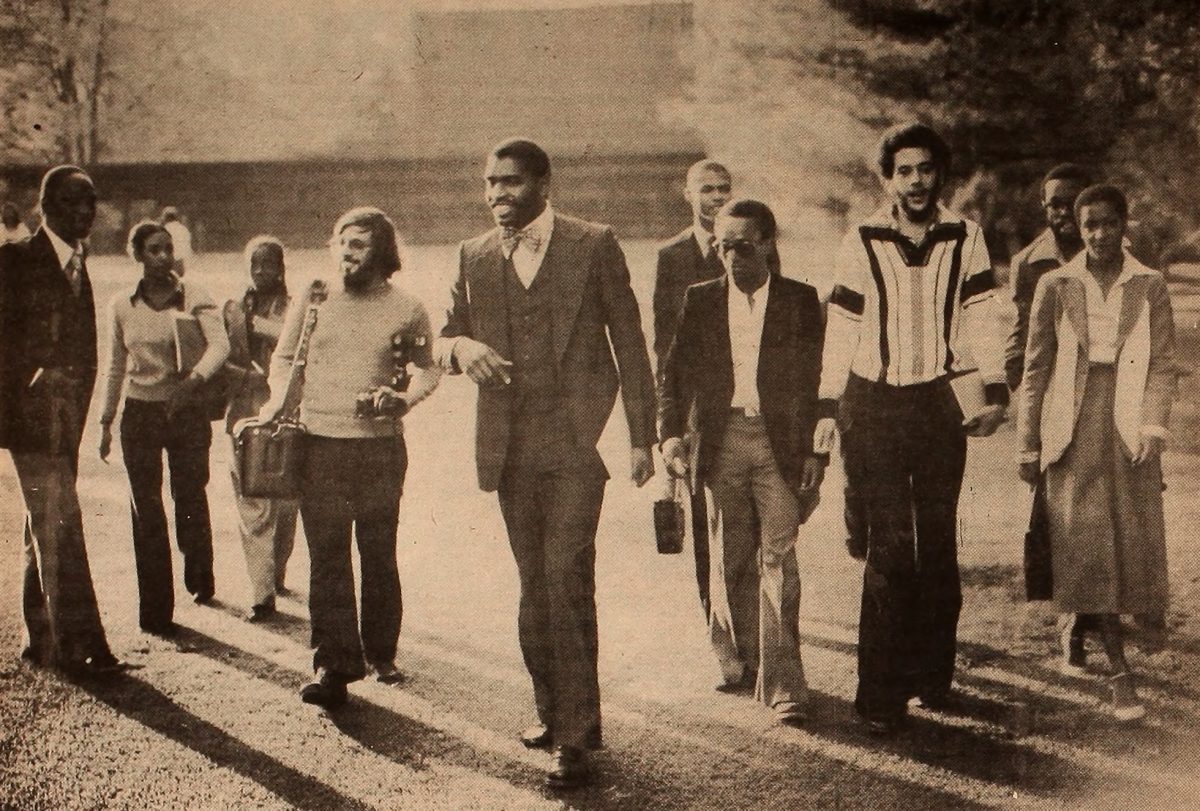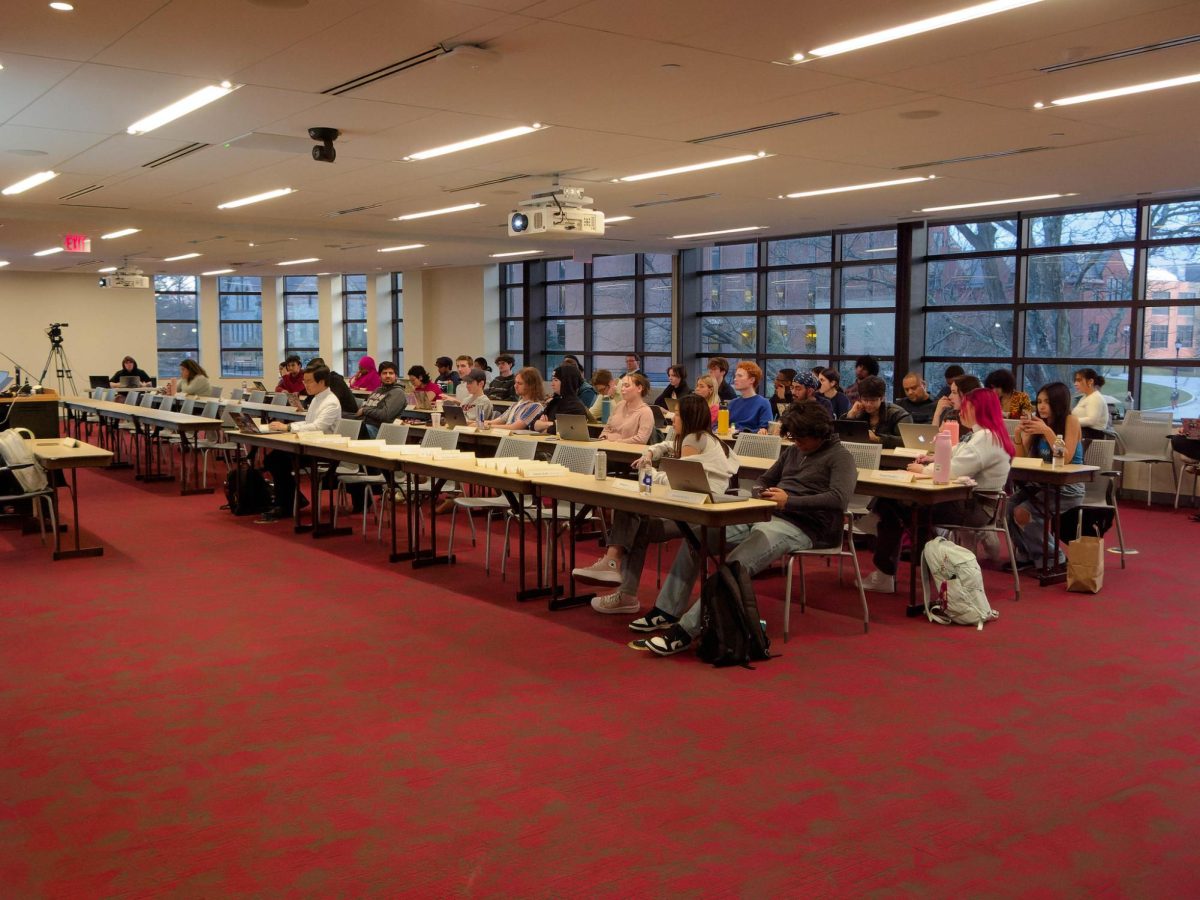Students can now view the pair of Peregrine Falcons nesting atop the W.E.B. Du Bois Library at the University of Massachusetts, according to a press release from the UMass News and Media Relations office.
The UMass Amherst Facilities Planning Division, the Office of Information Technology and the Massachusetts Division of Fisheries and Wildlife have teamed up to give a unique view into some of UMass’s feathery residents, according to the press release.
A webcam has been placed on the top of the library to give students a view of a pair of endangered Peregrine Falcons that have been nesting there for the past 10 years. For both students and bird lovers alike, the camera gives viewers a unique insight into the lives of these endangered birds, according to the release.
Richard Nathhorst, capital project manager of Facilities Planning at UMass, alongside personnel from MassWildlife, has tagged the baby falcons since birth. The nesting box, which was installed in 2003, has helped reintroduce the endangered Peregrine Falcons back into western Massachusetts, according to the release.
Conservation efforts by MassWildlife have been working to increase the number of pairs of these endangered birds, according to the release.
Restoration efforts for the species began after the ban of DDT in the U.S. in 1972, and efforts for the project have shown results. The species has grown rapidly, said the press release.
In 2007, 14 pairs of Falcons were known to be in Massachusetts. This year, the number has risen to pre-DDT levels. The aim is to get the species back to 375 pairs, which was the number of pairs east of the Mississippi pre-DDT, according to the release.
DDT created thin-shelled eggs, which were destroyed when the falcons nested atop them, according to the press release. This physical defect in the eggs devastated the species.
This past year was the first time the pairs of birds rose about their pre-DDT levels in Massachusetts, according to the release.
Justin Surgent can be reached at [email protected].













mason • Apr 19, 2012 at 12:55 am
Here is weblink
http://www.library.umass.edu/falcons